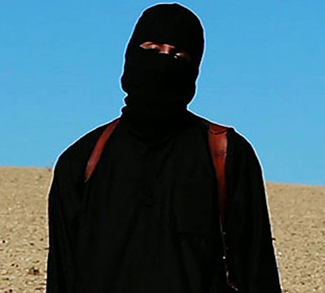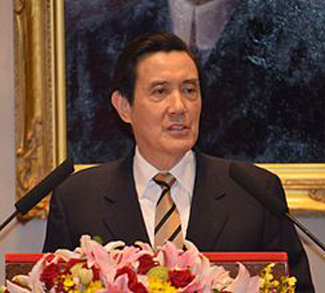In 2013, the Ansarullah Bangla Team (ABT), a rabid Islamic outfit in Bangladesh, released a list of 84 ‘atheist bloggers’ whom it vowed to punish by way of assassination. Within two years, nine of them have already been killed. After much delay the Bangladeshi government has finally banned the ABT. But there is room for discomfort as the government has shown an apparent dearth of conviction while dealing with Islamic fundamentalism.
This came out clearly in the statement of Sajeev Wazed Joy, the son of Hasina Wazed, after the death of Avijit Roy, a Bangladeshi-American blogger who was hacked to death in Dhaka last February. The Bangladesh government had simply kept quiet after the murder, and did not even send any condolences to Roy’s injured wife. On the other hand, in an interview to Reuters, Joy expressed that the political situation in Bangladesh is too volatile for the government to comment publicly and that the ruling party – the Awami League – did not want to be seen as atheist. “Given that our opposition party plays that religion card against us relentlessly, we can’t come out strongly for him (Avijit Roy, the murdered blogger), Sajeev told Reuters.
Bangladesh is now passing through a critical time in her history. Hasina Wazed knows that she must confront radical Islam if she wants to stay in Bangladeshi politics. But she is also hesitant. Meanwhile, Abdul Quader Mollah and Mohammed Qamaruzzaman, two front ranking leaders of the Jamaat-e-Islami have been executed for crimes against humanity during the liberation war of 1971. Successive judgements by the War Crimes Tribunals in Bangladesh handing out death penalties to several big wigs of the Jamaat-e-Islami (JeI) have certainly dealt a severe blow to fundamentalist Islamic politics in that country and have helped Hasina Wazed, the incumbent prime minister, in her declared mission of punishing those who committed crimes during that time, but it can be said with a fair amount of certainty that the enormous financial clout of the fundamentalist bloc will provide it with the necessary sustenance during this critical time. If Hasina Wazed really wants to wipe out every vestige of religious fundamentalist politics in her country, then mere execution of some religious bigots may not deliver the desired result and she would instead have to uproot the financial tentacles of the entire fundamentalist bloc.
Radical Islam in Bangladesh is represented by the Jamaat-e-Islami, its numerous sister organizations, the Bangladesh Nationalist Party (BNP), and to a lesser extent the Jatiya Party. During the liberation war, the Provisional Government of Bangladesh had forbidden all types of religion-based politics. But Mujibur Rahaman made a serious mistake when, in 1974, he declared a general amnesty for all wartime criminals. Taking advantage of it, the JeI leaders who had fled to Pakistan again came back to the newly independent Bangladesh. Ziaur Rahaman, Mujibur’s successor, banished the idea of secularism from Bangladeshi constitution and H.M.Ershad, the next president, made Islam the state religion. When Khaleda Zia became president, she took JeI as her alliance partner. That was the beginning of the long march towards radical Islam in Bangladesh.
According to Abul Barkat, Professor of Economics at Dhaka University, the Jamaat-e-Islami has created a ‘state within state’ and an ‘economy within economy’ in Bangladesh. In his opinion, the Jamaat has now established itself in almost every sector of the Bangladeshi economy- from large financial institutions to household-level micro credit organizations, from madrasas to mass media, and from big trading houses to non-governmental organizations. Barkat has calculated that Jamaat’s net annual profits from such ventures amounts to about $278 million, and the largest chunk – 27.5 percent – comes from banks, insurance, and leasing companies. Next comes the NGOs which contribute 18.7 percent; 10.5 percent comes from trade and commerce; 10.1 percent from pharmaceutical industries and health care institutions; 9.4 percent from education sector; 8.8 percent from real estate business; 7.3 percent from transport; and 7.7 percent from media and information technology business.
Of all the major political parties in Bangladesh, the BNP and the Jamaat-e-Islami have the strongest business lobbies and, ironically, persons accused of crimes against humanity during the liberation war dominate these lobbies in both parties. However, with the death sentence to Mir Quasem Ali, a business tycoon and central executive committee member of the Jamaat, there is a possibility that its political trajectory might change a bit. Apart from Mir Quasem Ali, Jamaat’s business lobby is represented by Abdur Razzak, also a suave barrister, though he represents a weaker faction and there is a strong possibility that Jamaat will try to bolster its business empire even if Mir Quasem Ali is not around.
Nearly ten percent of its total annual net profit of $278 million goes towards funding the party’s political activities. It has also been calculated that this ten percent can sustain nearly 600,000 cadres. Since the support base of the Jamaat is increasing, its business activities may also increase proportionately. However, the Jamaat-controlled economy is growing at a faster pace than the national economy. While the former’s annual rate of growth now stands at the 9 percent mark, that of the mainstream economy is only 6 percent. Abul Barkat has calculated that from 1975 to 2012, Jamaat has earned a profit of 11 billion dollars.
Mir Quasem Ali, the Jamaat central executive committee member and an infamous character, was the director of the Islamic Bank of Bangladesh Ltd. (IBBL), Jamaat’s principal financial arm. The IBBL has been involved in illegal activities for a long time. In 2006, the Bank of Bangladesh, the country’s top regulatory institution for the financial sector, had slapped a heavy penalty on the IBBL under the purview of the Money Laundering Act. The beneficiary of such illegal acts of the IBBL was no doubt the Jamaat-e-Islami. It is interesting to note that the IBBL was founded in 1975 at the initiative of Fuad Abdullah Al Khatib, the Saudi ambassador to Bangladesh. This was when Mujibur Rahaman had just been murdered and Ziaur Rahaman, the next president, had busied himself effacing all signs of secularism and religious pluralism from the body polity of Bangladesh.
Apart from the IBBL, Jamaat is in control of fourteen other banks. But the IBBL is its principal arm for survival. It has now become one of the three largest banks in South Asia, with sixty percent of its shares held by Saudi individuals and institutions. Among the rest, Kuwait, United Arab Emirates, and Qatar have prominence. Recently the bank has further spread its tentacles in the Islamic world by tying up with the Al Razee bank of Saudi Arabia. It is therefore clear that the battle will not be easy for Hasina. Jamaat has recently entered into the insurance sector as well, entering into a collaboration agreement with the Far Eastern Islamic Insurance Corporation.
If information from across the border is to be believed, then the Jamaat has already begun taking steps to safeguard its financial interests and line up the next generation of leaders should Matiur Rahaman Nizami and Mir Quasem Ali actually be hanged. For over 40 years, Mir Quasem was Saudi Arabia’s ‘ money man’ in Bangladesh and it’s quite probable that pressure pour in from the Islamic world of West Asia and the Middle East to stop his execution. He had taken refuge in Saudi Arabia after the birth of Bangladesh. After coming back in 1974, he immediately got a job in the IBBL and soon became its director.
Jamaat-e-Islami has another financial arm named the Islamic Bank Foundation (IBF) which can be called an affiliate of the IBBL. It oversees the projects of the IBBL. Profits from these projects and interests from foreign donations go to IBF accounts in the IBBL. Mir Quasem Ali happens to be the chief of the IBF as well as the national (Bangladesh) director of a Saudi Arabia -based non-governmental organization named Rabeta-al-alam-al-Islami. Rabeta, along with other NGOs like the Kuwait Relief Fund and the Al-Nahiyan Trust of Saudi Arabia, used to run many projects in Bangladesh. Abul Barkat, the Professor of Economics at Dhaka University, has calculated that the Islamic fundamentalism-controlled economy in Bangladesh amounts to 8.62 percent of the nation’s developmental budget and 1.54 percent of the national export earnings.




